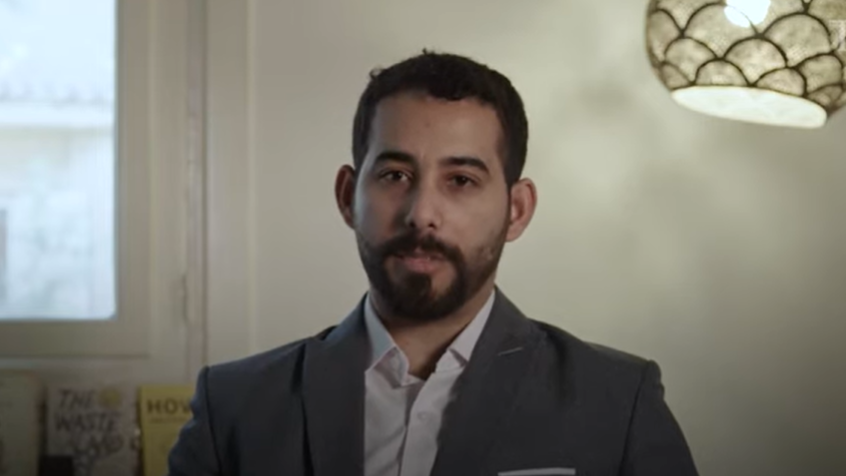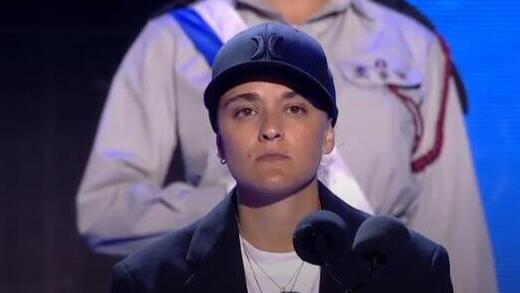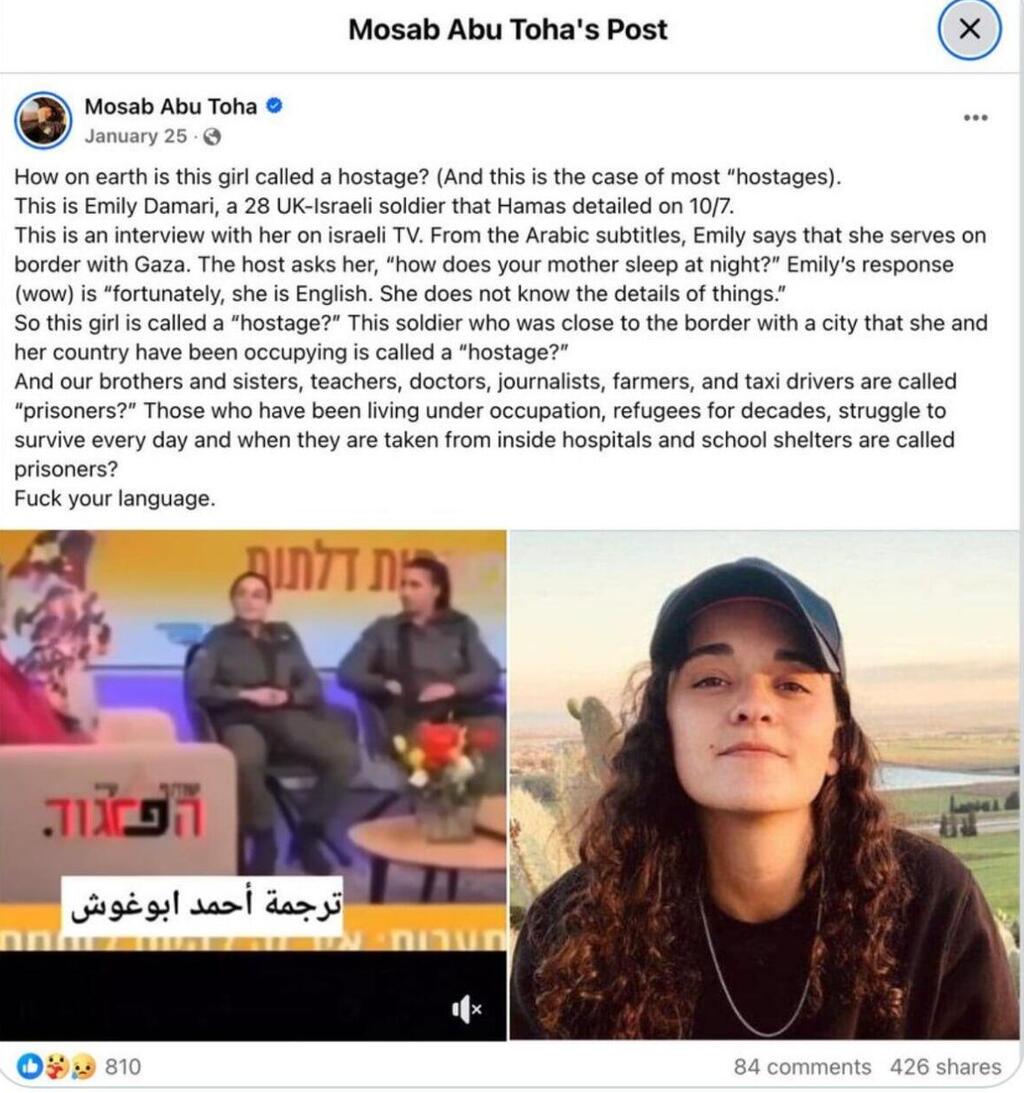Revelations emerged this week after Palestinian poet Mosab Abu Toha was awarded the Pulitzer Prize for commentary, about his past comments justifying the October 7 massacre and expressing antisemitic views. Now, Emily Damari—a former hostage recently released from Hamas captivity—has issued a direct and emotional appeal to the Pulitzer Prize Board.
"Dear Members of the Pulitzer Prizes board, My name is Emily Damari. I was held hostage in Gaza for over 500 days," Damari wrote in the open letter. "On the morning of October 7, I was at home in my small studio apartment in Kibbutz Kfar Aza when Hamas terrorists burst in, shot me and dragged me across the border into Gaza. I was one of 251 men, women, children, and elderly people kidnapped that day from their beds, their homes, and a music festival."
"For almost 500 days I lived in terror. I was starved, abused, and treated like I was less than human. I watched friends suffer. I watched hope dim. And even now, after returning home, I carry that darkness with me - because my best friends, Gali and Ziv Berman are still being held in the Hamas terror tunnels," she wrote.
"This is a man who, in January, questioned the very fact of my captivity. He posted about me on Facebook and asked, 'How on earth is this girl called a hostage?' He has denied the murder of the Bibas family. He has questioned whether Agam Berger was truly a hostage. These are not word games - they are outright denials of documented atrocities."
She continued: "You claim to honor journalism that upholds truth, democracy, and human dignity. And yet you have chosen to elevate a voice that denies truth, erases victims, and desecrates the memory of the murdered. Do you not see what this means? Mosab Abu Toha is not a courageous writer. He is the modern-day equivalent of a Holocaust denier. And by honoring him, you have joined him in the shadows of denial. This is not a question of politics. This is a question of humanity. And today, you have failed it."
Abu Toha was awarded the Pulitzer Prize for commentary, journalism’s most prestigious honor, for a series of essays in The New Yorker about life in Gaza during the war. According to the Pulitzer board, he was recognized “for deeply reported and personal essays that describe the physical and emotional devastation in Gaza, blending meticulous observation with the intimacy of memoir to convey the Palestinian experience during more than a year and a half of war with Israel.”
He responded to the award on social media, writing on X: "I dedicate this success to my family, friends, teachers, and students in Gaza. Blessings to the 31 members of my family who were killed in one air strike in 2023." He concluded the post with: "I’m praying for an immediate and permanent ceasefire and JUSTICE and PEACE!"
Among the poet's winning essays are "The Gaza We Leave Behind," published on the site on October 7, 2024, a year after the massacre, and describing his longing for his homeland, and "Requiem for a Refugee Camp," which deals with the destruction of the Jabaliya refugee camp, where his grandparents were born and raised. In it, he recalled his days in Jabaliya in early November 2023: "I saw two men carrying a headless body. ... Then I came to a view of hell—an area of at least twenty-seven thousand square feet, flattened and ablaze. I had never witnessed such devastation in my life. When I returned to my family, I told them, 'There cannot be more destruction like this.' I could not imagine anything worse."
At the outbreak of the war, Abu Toha fled from his home in northern Gaza to the Jabaliya camp, then attempted to escape to the United States via Egypt with his wife and three children. He currently resides in New York.
Following Damari’s release, Abu Toha posted about her in January on X: “How can this girl be called a hostage? (Yes, that’s the case for some of the captives). This is Emily Damari, a 28-year-old British-Israeli soldier whom Hamas captured on 10/7. This is an interview with her on Israeli TV. According to the Arabic subtitles, Emily says she served near the Gaza border. The interviewer asks, ‘How does your mother sleep at night?’ Her answer (wow): ‘Fortunately, she’s English. She does not know the details of these things.’”
Get the Ynetnews app on your smartphone: Google Play: https://bit.ly/4eJ37pE | Apple App Store: https://bit.ly/3ZL7iNv
He continued, “So this girl is a ‘hostage’? This soldier, who was near a city that she and her country occupy, is called a ‘hostage’? And our brothers and sisters—teachers, doctors, journalists, farmers, taxi drivers—are called ‘prisoners’? People who live under occupation, refugees for decades, struggling daily to survive, and when they are taken from hospitals and school shelters—they are called prisoners? F*** your language.”
In a separate post on February 3, Abu Toha referred to Israeli IDF observer Agam Berger as a “murderer” after she attended her sister’s Air Force graduation ceremony.
On February 21, he cast doubt on Israel’s account that Hamas terrorists had killed Shiri Bibas and her two sons, Kfir and Ariel, with their bare hands. “Shame on you, BBC. You are a propaganda machine,” he wrote. “If you haven’t seen any evidence, why publish this? Well, that’s what you are—filthy people.”




